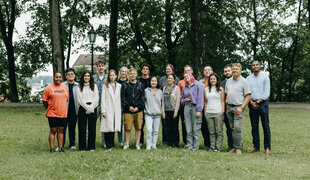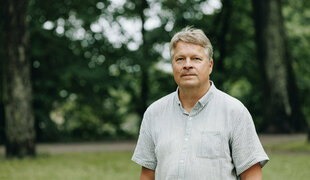Secessionist and Statehood Bids in Times of Crises
On-site in Tartu, 28 July - 6 August 2025
With wars in Ukraine, Gaza and Nagorno-Karabakh dominating contemporary international relations the study of secessionist bids and the quest for statehood and recognition becomes paramount. Students of International Relations can benefit from a thorough and comprehensive understanding of the concepts and practices of secessionism as well as the way in which these aspects impact international order. Questions regarding peace and violence in secessionist bids as well as the possible outcomes of secessionist wars continue to dominate both academic and policymaking debate, making this topic worthwhile for discussion and study.
This course highlights fundamental questions of sovereignty and statehood in the context of secessionist conflicts. It offers an insight into the topics such self-determination and sovereignty practices, survival pathways, incomplete and negotiated secessions. We will also explore the topics of “frozen conflicts” and de-facto states and their agency. We then turn to analysing the politics of recognition, counter-secession strategies and engagement without recognition as well as the success and failure of secessionist movements. This course relies mostly on first hand research and is comparative in nature, with students having the opportunity to explore different cases of secessionist bids from across the world through a combination of teaching, independent work as well as discussions based on various films and a fieldtrip to Narva. A separate part of the course will be dedicated to a simulation exercise in where students will have the chance to gain first-hand experience of negotiation techniques as well as practical knowledge of the Israel-Palestine conflict.
Information about the course
Focus area: | Secessionist conflicts | Coordinating unit: | Johan Skytte Institute of Political Studies |
Study Field: | International Relations | Course Leaders: | Prof Eiki Berg |
Format: | Summer Course | Location: | Lossi 36, Tartu |
Course dates: | 28 July - 6 August 2025 | Language: | English |
ECTS: | 3 | Study group: | MA/PhD |
Lecturers
Prof Eiki Berg | Dr Shpend Kursani |
| Professor of International Relations at the University of Tartu. He has published widely in leading peer-reviewed journals on different aspects of de facto state dynamics. He is co-editor of The Politics of International Interaction with De Facto States: Conceptualising Engagement without Recognition (Routledge, 2018) and co-author of De Facto States and Land-for-Peace Agreements: Territory and Recognition at Odds (Routledge, 2022). In 2012, he received National Science Award in the field of Social Sciences, for the research in “Identities, Conflicting Self-Determination and De Facto States”. | Lecturer at the University of Tartu. He defended his PhD thesis on Contested States: The Struggle for Survival and Recognition in the Post-1945 International Order (European University Institute, 2020). He has published on coordinated recognition practices of de facto states and has ongoing works on conceptual, theoretical, and methodological aspects of the study of de facto states. |
Application deadline: 30 April 2025
Application period: 1 April - 30 April 2025
NB! All of the applicants are required to pay a non-refundable application fee of EUR 25. Your application will only be processed after the University has received the fee. The application fee is required to facilitate the admissions process and will not be refunded, regardless of the admission result.
Course fee: 700EUR
Includes:
Study materials
10 days of academic work with lecturers
Certificate of completion (3 ECTS)
4 cultural events in the evenings
Ticket to University of Tartu museums
NB! Transportation and accommodation costs are not included. The course fee does not cover participant's lunch during the summer school.
Photo Gallery
Check out the photos from last year's summer school





